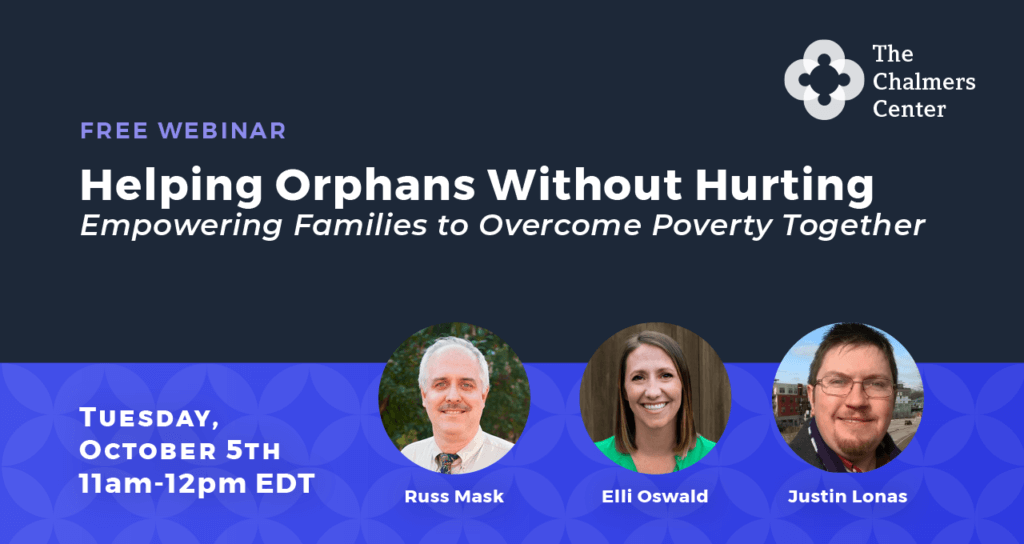How to Best Help COVID Orphans
Originally published at thegospelcoalition.org
The sense of relief many Americans felt during the summer as COVID-19 illnesses, hospitalizations, and deaths declined has vanished. New variants of the virus have launched another wave of precautionary measures and political fights about responsibility to care for the vulnerable, not to mention a new wave of heartache as hospitals fill and loved ones are lost.
In the midst of this crisis, a study recently released by a British medical journal The Lancet pointed out that more than a million children worldwide have lost a primary or secondary caregiver during the pandemic. The report’s summary includes the dire warning, “Orphanhood and caregiver deaths are a hidden pandemic resulting from COVID-19-associated deaths.”
In the same paragraph, however, The Lancet suggests that “psychosocial and economic support can help families to nurture children bereft of caregivers” and to prevent institutionalization.
This warning should give us pause. Building and supporting orphanages seems like a natural response to a crisis for vulnerable children, but maybe there’s a better way. Far from an excuse to do less, we should see this report and warning as an invitation to do more, and to do it better.
The Challenges of Institutional Care
Historically, caring for orphans and vulnerable children has been a key way that Christians engage with mercy ministry and humanitarian causes. It has a clear, coherent New Testament proof text: “Religion that is pure and undefiled before God the Father is this: to visit orphans and widows in their affliction, and to keep oneself unstained from the world” (James 1:27).
Indeed, according to a 2021 Barna Research survey of American Christians, 19 percent had financially supported residential care—in other words, orphanages or children’s homes—within the past year. That adds up to about $3.3 billion per year.
Increasingly, however, evidence-based best practices show the vital importance of family and community in the life of every child, revealing troubling gaps in the institutional care model.
To begin with, an estimated 80 percent of children in orphanages actually have a living parent, and the vast majority also have other family members who would be willing to care for them.
“Most children are placed in orphanages because of poverty,” wrote Elli Oswald, executive director of Faith to Action, a collective of ministries that serves as a resource for Christians responding to the needs of vulnerable children. “Other common reasons include natural disasters, lack of access to education, and the inability of families to care for a child with special needs. Parents are often making an impossible choice to place their child in an orphanage with the hope that their child’s basic needs will be met.”
To be sure, poverty can often be a shorthand for other complicating issues. Family breakdown, abuse, addiction, and painful generational cycles are often at play as well. In some instances, it will never be safe for a child to return to his or her biological family.
The problem is, “decades of academic research have confirmed that orphanages and children’s homes have negative outcomes for children and should be used only as a last resort,” Oswald said. She cited a report from Harvard University, which concluded that “young children who experience significantly limited caregiver responsiveness may sustain a range of adverse physical and mental health consequences that actually produce more widespread developmental impairments than overt physical abuse.”
Though it’s sometimes necessary, reaching too quickly for the orphanage model can be harmful. How can we do better?
Toward Family-Based Care
It’s not that Christians lack knowledge of the problems with institutional orphan care.
Barna found that 96 percent of American Christians believe a family environment is essential for a child’s well-being, 81 percent believe ending the need for orphanages is a worthwhile goal, and 72 percent feel inspired to make a change toward family care over residential care for the children they support.
“Ideally, alternative forms of care for children include a spectrum capable of addressing a range of unique needs—from kinship placements (when reasonably healthy and welcoming relatives are available) to foster care and adoption and (sometimes) group homes,” Christian Alliance for Orphans president Jedd Medefind said.
The answer isn’t shutting down all group homes, which can be necessary for the most vulnerable. It’s adding support for the myriad of other ways a child can be enfolded into a community.
And it’s acknowledging that underneath are a host of other issues, from systemic oppression to generational material poverty. Supporting measures that strengthen households and communities economically—such as church-centered approaches to microfinance—can go a long way toward supporting family-based care initiatives and preventing family separation.
A Healthy Response to Current Need
In moments of crisis such as the emerging toll of COVID on children—not to mention the unfolding situation in Afghanistan, the recent earthquake in Haiti, and natural and manmade disasters around the world—our instinctive desire to help is good and right. But perhaps we should check our methods. Instead of rushing to build orphanages, we should rush to support local churches—and the organizations that partner with them—in affected areas.
“We know [that] when families are supported during these tragic times, they can provide the love and care a child needs to thrive,” Oswald said. “The church is best placed to respond to the needs of these children as it carries out the vision we see in scripture of God’s intention for family, and ensures that a child never needs to be placed in an orphanage.”
“This time—unlike in previous emergencies—we have the opportunity to get things right, because we know what works,” said Karmen Friesen, principal coordinator for World Without Orphans. “And around the world, it is churches that are ideally placed to provide the wraparound support that families in crisis urgently need.”
How we help vulnerable children makes a world of difference. How can we support the care of children in ways that strengthen families, churches, and communities?
Join us to discuss:
- The complexity of material poverty and why family-based care is best for vulnerable children
- How organizations of any size can use accessible development tools to empower households and communities to care for children
- How to understand your ministry context, offer effective help, and find like-minded partners focused on long-term transformation



